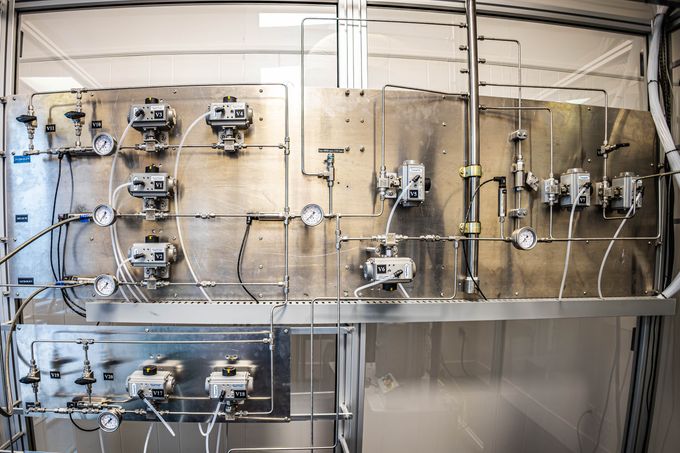Why this Hawaiian innovator took a bet on Houston for unique hydrogen pipeline technology
HOUSTON INNOVATORS PODCAST EPISODE 204
On an island almost 4,000 miles away, a company is creating research-based tech innovation that's sending ripple effects across the Pacific Ocean to Houston's energy ecosystem.
While Oceanit, founded in 1985 by Patrick Sullivan, is based in Hawaii, a portion of its customer base is based right here in Houston.
“We are, indeed, in the middle of the sea, but we work around the world,” Sullivan, who serves as president and CEO of his company, says on the Houston Innovators Podcast. “What we do in Houston is interesting because we consider Houston the center of energy. And energy makes the world go around, and there’s just no two ways around it. Of course, there’s lots of transition going on, so it’s an exciting time to be doing energy.”
In fact, realizing how much business opportunity there is in Houston, Oceanit recently opened H2XCEL — short for “Hydrogen Accelerator” — locally, aiming to integrate hydrogen into the current energy infrastructure.
H2XCEL will be the only lab in the U.S. capable of testing hydrogen and methane mixtures at high temperatures and pressures. Its aim is to protect pipelines from hydrogen embrittlement — when small hydrogen molecules penetrate pipe walls and damage the metal, potentially causing cracks, leaks, and failures.
The facility acts as a demonstration opportunity for Oceanit to test and show how hydrogen could be transferred via existing infrastructure.
"We can test to failure right there in Houston," Sullivan says on the show. “We’re talking to all the pipeline companies about getting their steel pipe and running through all these tests to show how it’s going to perform with all these different mixtures."
“The idea is to get the community to see that when you integrate technology from different fields into the energy space, we can keep making progress,” he continues.
Hydrogen embrittlement prevention is just one piece of what Oceanit's team is working to find solutions for. Sullivan describes his company as a 'Mind to Market' approach to industry. His business model includes some venture capital backing, but he says he prefers to partner with customers directly, explaining that the type of technology Oceanit deploys takes time and customization. This corporate co-development, as he explains, is Oceanit's unique approach to disruption.
There are so many opportunities within the energy transition to innovate, as Sullivan says, and it's not just one thing that's going to move the needle. The transition will require many different types of tech.
"It’s going to take time," he says. "But if we start reducing carbon and the use of fossil fuel today, we buy time for the planet."
Sullivan shares more on his company's unique approach to innovation on the podcast. Listen to the interview here — or wherever you stream your podcasts — and subscribe for weekly episodes.
- Houston material science company strategically rolls out flagship product nationwide ›
- Houston health care leader drives innovation, preventive cardiovascular care ›
- This Houston medical device innovator plans to lead a 'paradigm shift' in vascular surgery ›
- Hawaii-based tech company opens new lab in Houston to enhance hydrogen pipeline safety ›

